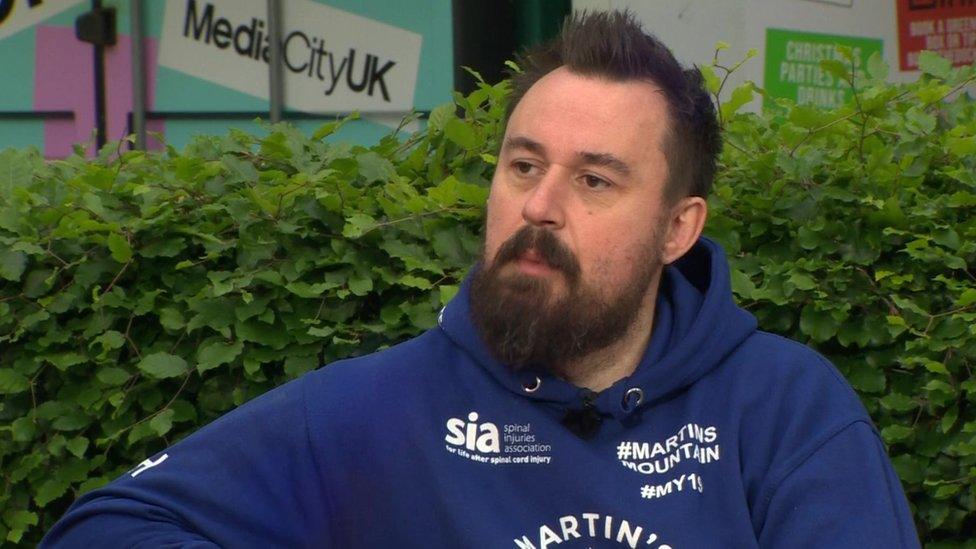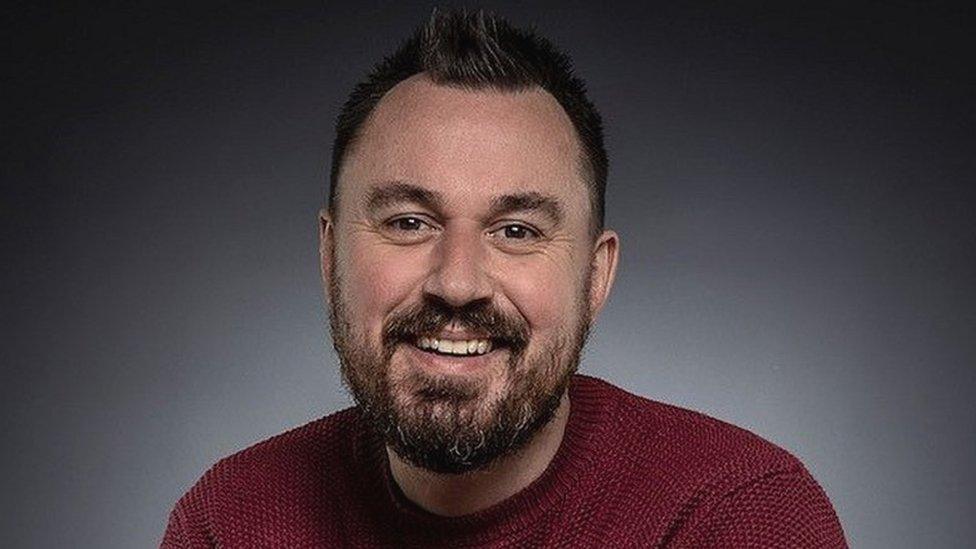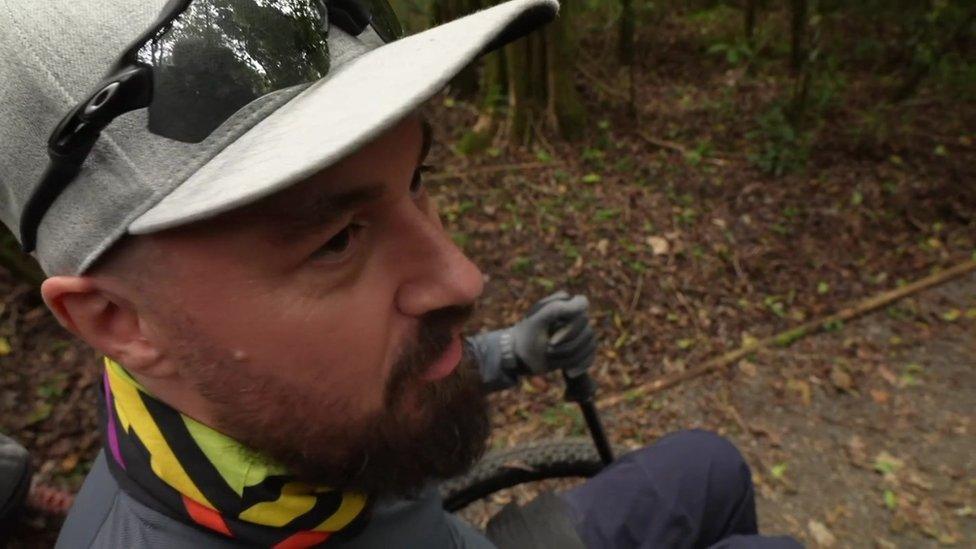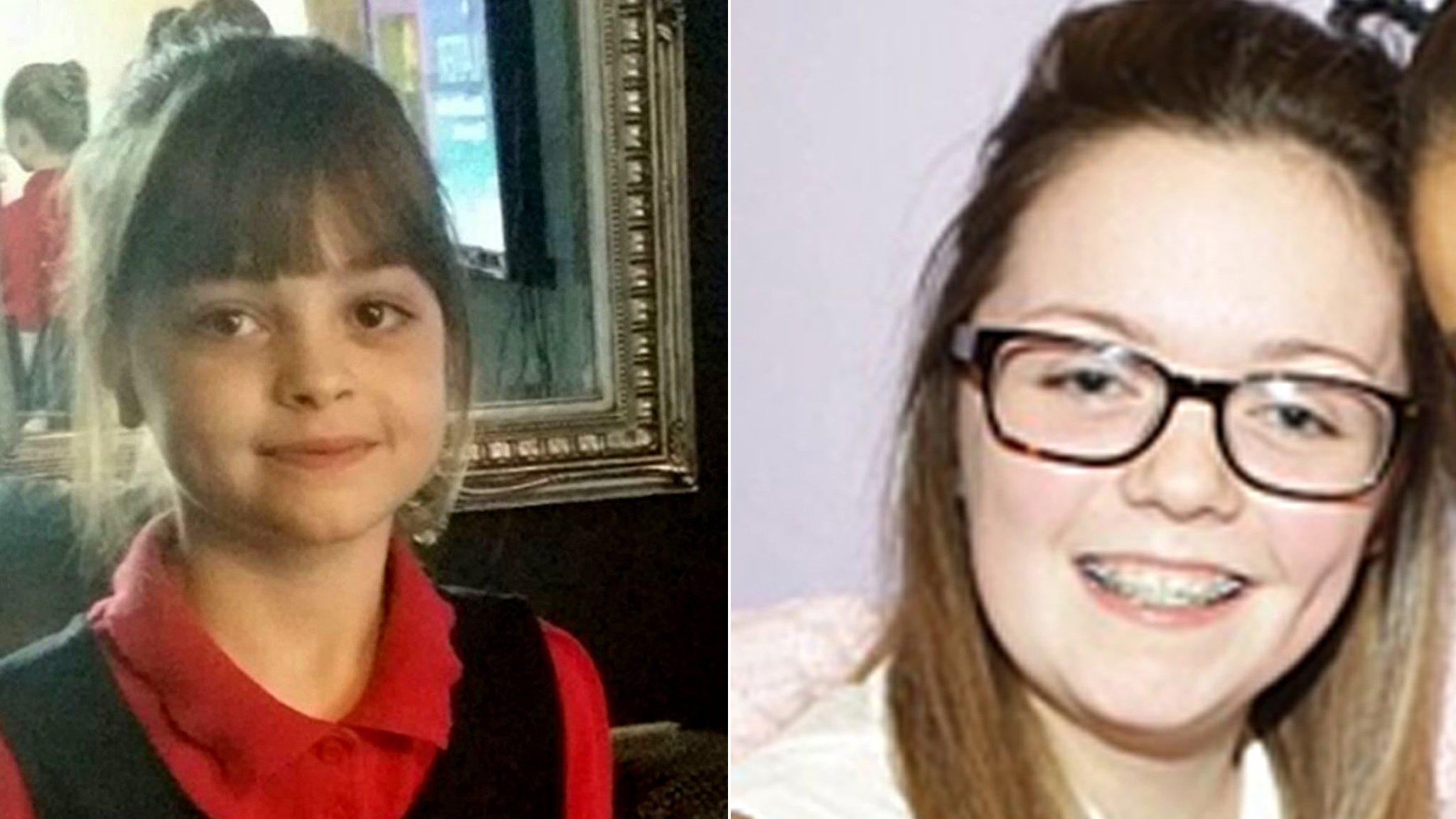Manchester Arena attack survivors sue conspiracy theorist
- Published

Martin Hibbert was left paralysed from the waist down after the 2017 attack
A man and his daughter who were seriously injured in the Manchester Arena bombing are suing a conspiracy theorist who claims the attack was faked, the High Court has been told.
Martin and Eve Hibbert are pursuing Richard Hall for harassment, misuse of private information and data protection infringement.
They were both seriously injured in the 2017 blast, which killed 22 people.
Judge Richard Davison will give his decision in writing at a later date.
Hundreds of other people were injured when Salman Abedi detonated a home-made device in the arena's foyer at the end of an Ariana Grande concert, on 22 May 2017.
Mr Hibbert, who lives in Chorley, Lancashire, was left paralysed from the waist down while his daughter suffered a serious brain injury.
'Disputes the attack'
The pair applied for a summary judgment for parts of their claims against Mr Hall - a legal step that would see those aspects decided without a trial.
Jonathan Price, representing the pair, said in written submissions that Mr Hall "disputes that it was a terrorist attack, that it involved any kind of destructive explosive device at all, and he contends that many of those purporting to be victims of it, including the claimants, are in fact 'crisis actors' and were not involved in the attack at all".
Mr Price told the hearing in London that Abedi's brother Hashem was found guilty of 22 counts of murder.
The barrister said he had "ticked off" the issue of proving those killings "unless the defendant can prove that the 22 people were not murdered in the way described on that day".
Mr Price also said there is a "very detailed" report into Mr Hibbert's medical condition by his spinal injuries consultant.
Mr Hall claimed to have found inconsistencies in Mr Hibbert's accounts of the attack, the court was told.
But Mr Price said: "They do not raise anything beyond a fanciful case that this bombing did not happen."
Mr Hall, representing himself, argued that there is no "first-hand tangible evidence", like CCTV footage or photographs of injuries, to prove the father and daughter were at the arena or were hurt as a result of the blast.
'Most influential'
The medical reports submitted do not "provide evidence of the time and place where they got the injuries", he told the court.
Mr Hall also said the public inquiry into the attacks did not show any CCTV of the claimants being present.
He showed the court a series of images, which he claimed reveals survivors are lying about their injuries, and referred to people pictured lying on the ground near the arena as having "agreed to take part in an exercise".
Mr Hibbert raised more than £900,000 for the Spinal Injuries Association by climbing up Mount Kilimanjaro in 2022 using a specially-adapted wheelchair.
Last year, he was also named one of the most influential disabled people in the UK.

Why not follow BBC North West on Facebook, external, X, external and Instagram, external? You can also send story ideas to northwest.newsonline@bbc.co.uk
Related topics
- Published8 November 2023

- Published8 June 2022

- Published3 November 2022

- Published23 May 2017
